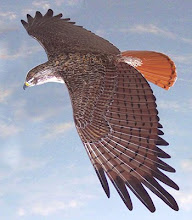A Place Of Elegant Contradictions



Upon the brink of the wild stream
He stood, and dreamt a mighty dream.
--Aleksandr Pushkin (1799--1837)
It is late. The air is thick with light, that time of day among these canyons when the sun goes as soft as sand and the river flows the color of gold. The edge has dropped off the heat and shadows have begun to pool on the ledges like dark, clear water. We will camp just downstream, our last camp, around the bend not far, and so we drift.
In my hands the oars feel as solid as good axe handles, worn to a sheen at the oarlocks by the battles with the rapids upstream--Lava, Crystal, Hermit and others. But here it is quietwater. Our five boats drift slowly and silently as thought--thoughts of the place we have just come through: the Grand Canyon.
From one of the boats ahead there is laughter, sharp and sounding like the click of pebbles on the cliffs. Nearer, someone is reading from the Powell Journals of the first trip through the canyon by river. On this date 114 years ago Major John Wesley Powell and his men were drifting toward their final campsite. With a few burlap sacks of moldy flour but "plenty of coffee," the expedition was drifting out of the "Great Unknown" and into history books as one of the most daring chapters of western exploration. Powell writes:
The relief from danger and the joy of success are great. The river rolls by us in silent majesty; the quiet of our camp is sweet; our joy is almost ecstasy. We sit till long after midnight talking of the Grand Canyon.
Our camp at mile 220 is about 50 miles short of where Powell and his men stopped for the night, a section that is now choked with the fat fingers of Lake Mead. That's not all that's different--the pork chops on the grill, the slivers of ice for our whiskey--but the river still rolls by us in silent majesty, the quiet of our camp is just as sweet, and until long after midnight the talk will be of these canyons.
To those who have been here, it is the canyon and explaining why to someone who hasn't is a little like explaining poetry to a rock. It is simple enough to spout out the statistics: 277 river miles through a canyon that is a mile deep in places and averages nine miles wide (18 miles at the widest), cradling a river that drops 2200 feet through a hundred rapids, some rated Class V.
But numbers no more capture the spirit of the Grand Canyon than the tangle of lines on a topographic map capture the beauty and spirit of Mount Everest. The canyon is too much to be confined that way. Despite Glen Canyon Dam and Hoover Dam, the Grand Canyon has not been totally tamed. It can still be a difficult place. The Colorado is still a cold, powerful river cutting through a landscape of silent rock and heat that can shatter bone. There are rattlesnakes, scorpions, wild box canyons. There are shadows as deep as the river and light that turns to strings of gold at sunset. It is a place where you can feel the claws of thirst ripping at your throat and you can stare at a river full of water a thousand feet below and a day's hike distant. It is a place of elegant contradictions.
--Jeff Rennicke (from "River Days: Travels On Western Rivers")
upriver from between Ninetyfour Mile and Trinity Canyon (top)
inner gorge from outside Horn Canyon (middle)
view west below Garnet Canyon (below)


<< Home